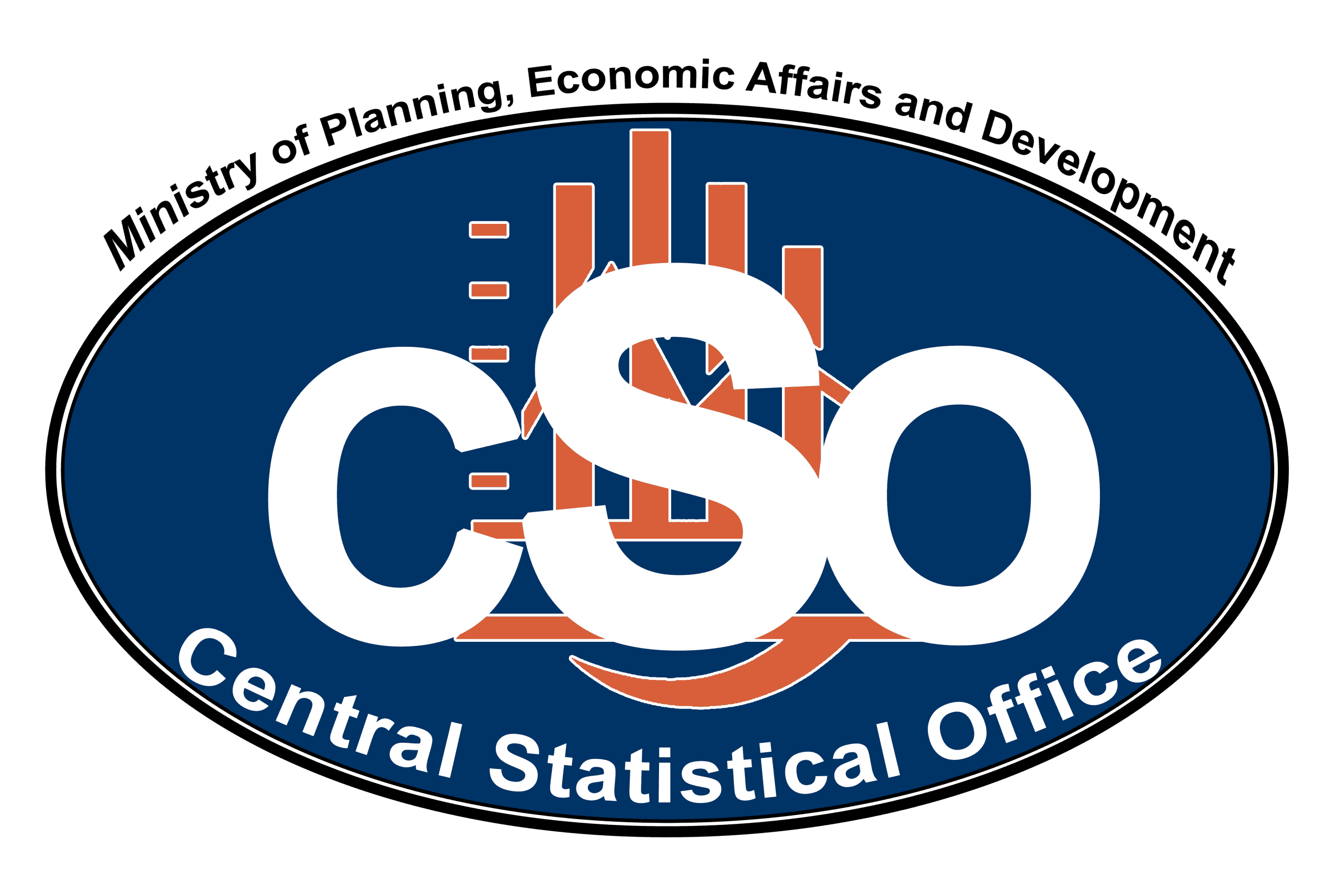Data dissemination refers to the release of data obtained through a statistical exercise to stakeholders.
These stakeholders include but are not limited to policy makers, researchers, international bodies, and the general public. There are two factors to consider in the actual dissemination process: the data dissemination format and the media.
The data dissemination format describes the tangible nature of the data, whether it is a ¨hardcopy¨ or electronic while data dissemination media involves the methods of transmission such as paper publications, press releases, the internet and more.
CSO’s printing unit preparing a publication for dissemination.
Data dissemination can be considered the ultimate objective of any statistical system within the broader context of an integrated national development strategy.
The first of the United Nations´ Fundamental Principles for Official Statistics states that: ¨Official statistics provide an indispensable element in the information system of a democratic society, serving the Government, the economy and the public with data about the economic, demographic, social and environmental situation. To this end, official statistics that meet the test of practical utility are to be compiled and made available on an impartial basis by official statistical agencies to honour citizens’ entitlement to public information.¨
Aspects of the data dissemination process in a local context include:
- The International Monetary Fund (IMF) data dissemination standards
- The data requirements of Trinidad and Tobago Stakeholders
- The impact of non-conformance with data dissemination standards
In 2004, Trinidad and Tobago began participating in the International Monetary Fund (IMF) General Data Dissemination System (GDDS). This system prescribes the quality and dissemination of data by providing a framework for accurate and comprehensive statistical exercises for policymaking and research. The GDDS was first introduced in 1997 to assist countries in improving and prioritising their data. It was replaced by the enhanced GDDS (e-GDDS) in 2015.
The e-GDDS enables and promotes the dissemination of data in a standardized format which establishes data transparency and allows for the evaluation of data quality and determination of data gaps. The assessment of data quality and identification of any data gaps can offer insights on critical statistical areas requiring technical assistance and donor support.
As a member of the IMF´s e-GDDS, Trinidad and Tobago is expected to comply with certain regulations regarding the production and dissemination of its data. Subscribers all agree to the use of the e-GDDS as a statistical development framework, and to produce reports on current statistical production and dissemination as well as plans for their long and short-term improvement.
Members must also provide updates on their plans for amelioration of their statistical exercises. Statistical exercises such as national censuses should include the components of high quality data discussed in our previous article: relevance, accuracy, timeliness, interpretability, accessibility, coherence and credibility. These plans are expected to detail any impediments to the achievement of the e-GDDS´ objectives, proposed solutions for those issues, resources needed, and the timeframe within which they can be expected to be completed.
High performance in the e-GDDS is necessary to advance to the Special Data Dissemination Standard (SDDS), established in 1996, which provides assistance to members with exceptional statistical production values that wish to have access to international capital markets.
Data provided by statistical exercises like the national census can provide motivation for change and act as a catalyst for action. However, data which does not meet the standards set for high quality production, analysis, and dissemination can result in poor decision making, ineffectual resource allocation and reduced opportunities in international forums.
Data which meets the standards for high quality production facilitates proper policy decision making.
Interested foreign investors use the data available or lack thereof to access the economic viability of doing business in Trinidad and Tobago. Therefore, conformance with data dissemination standards provide a measure of security for credit agencies and investors alike while improving ranking with indices such as ease of doing business and standard of living.
It is evident that high quality data can enhance the socio-economic landscape of a country by informing foreign and national decision-making processes and policy. Altogether, the production, analysis and dissemination of high quality data is tantamount to the socio-economic growth of Trinidad and Tobago, further underscoring the necessity for the public to fully participate in the 2022 Population and Housing Census and to cooperate with the Central Statistical Office in their conduct of statistical activities.




